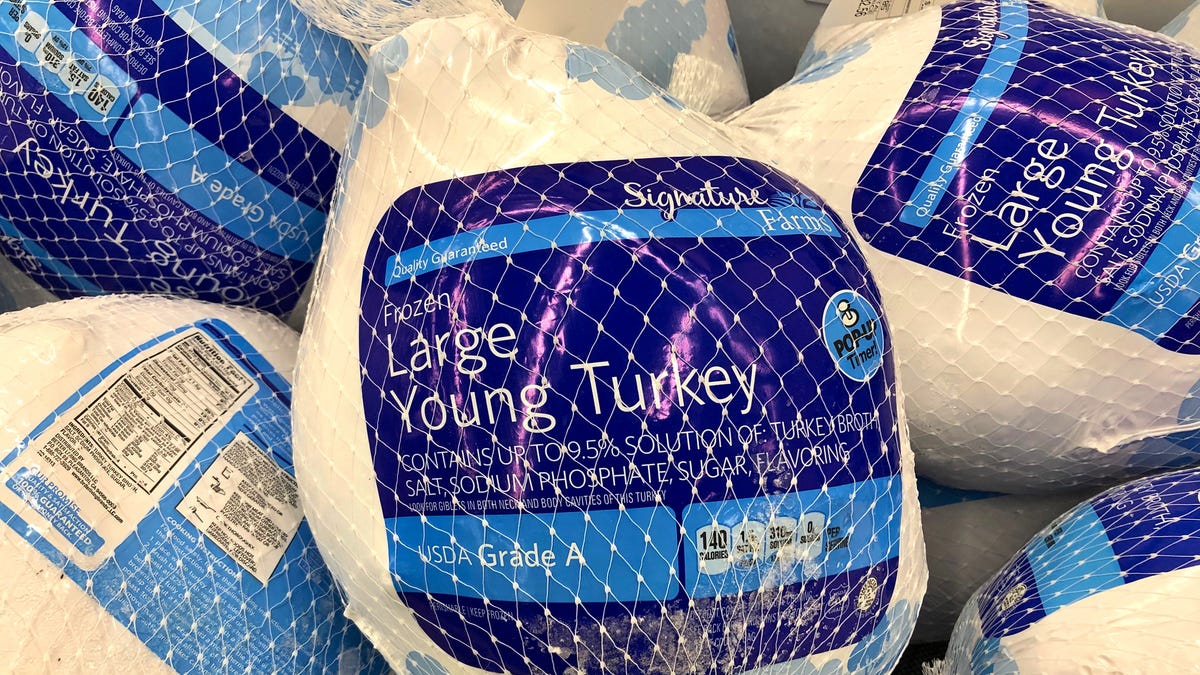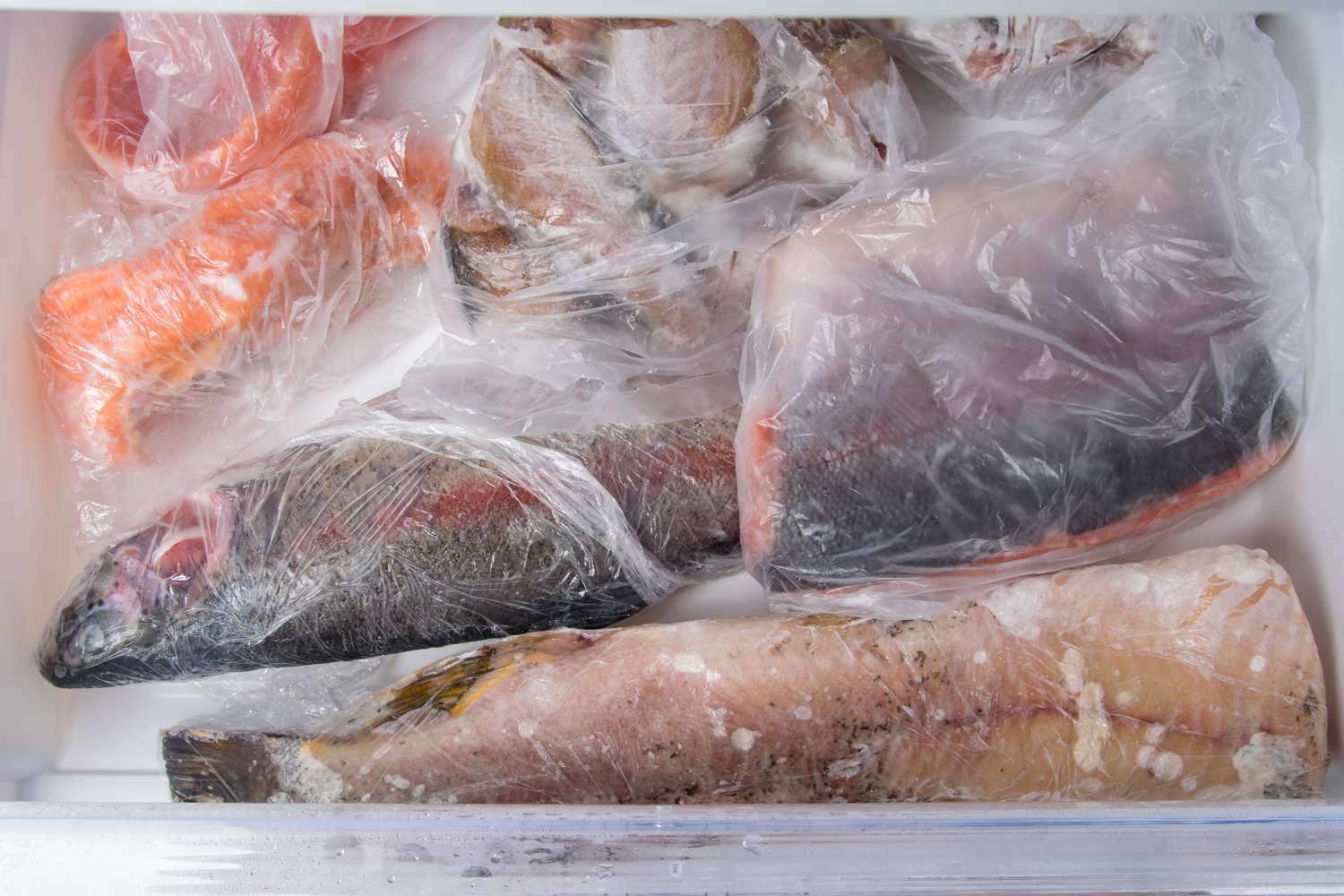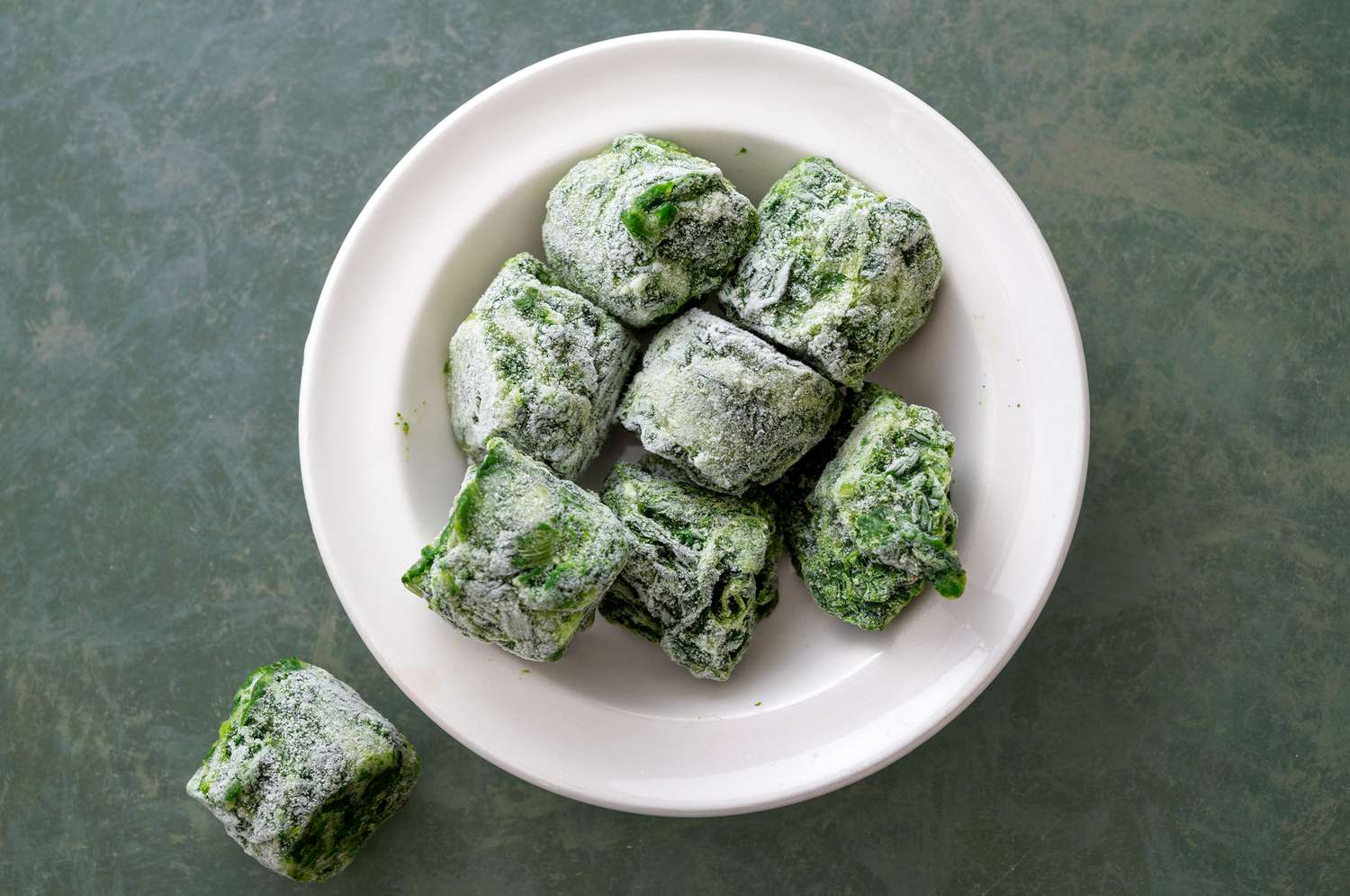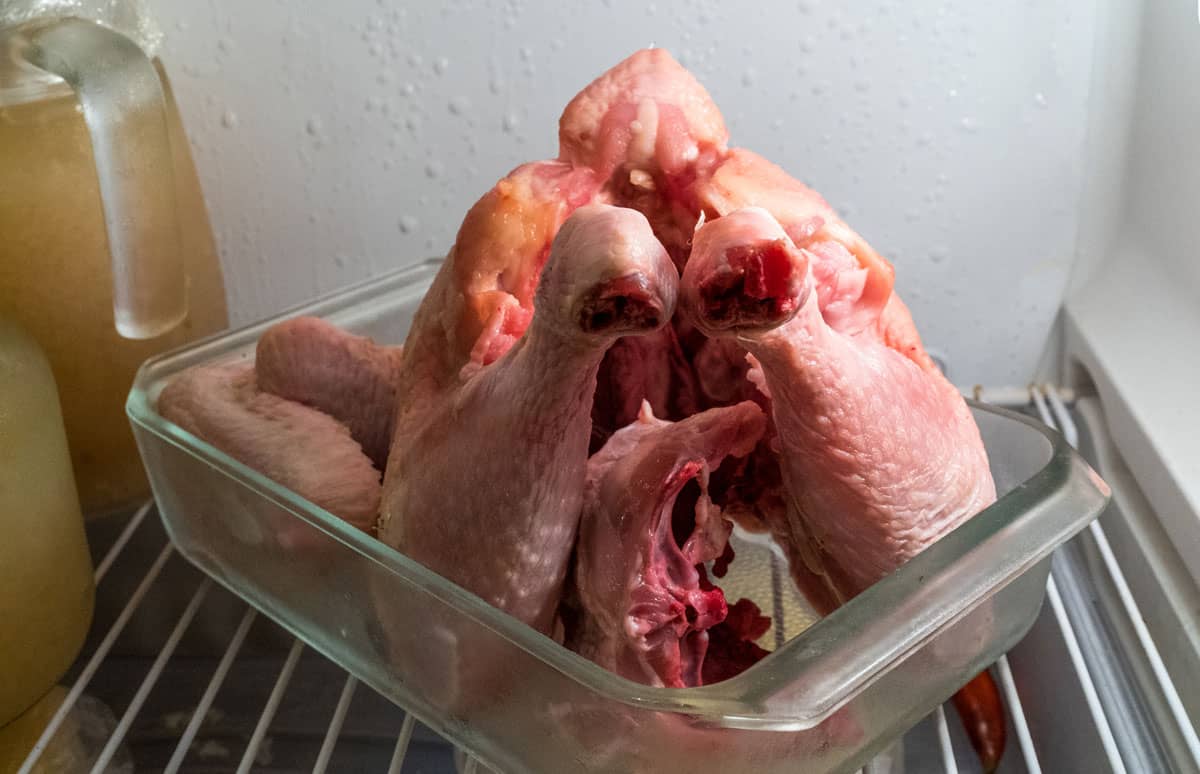

Articles
How Long Can A Turkey Last In The Freezer
Modified: August 17, 2024
Discover the answer to how long a turkey can last in the freezer and get expert advice with our informative articles on all things freezer storage.
(Many of the links in this article redirect to a specific reviewed product. Your purchase of these products through affiliate links helps to generate commission for Storables.com, at no extra cost. Learn more)
Introduction
When it comes to storing food for an extended period of time, the freezer is a lifesaver. It allows us to stock up on perishable items, such as meat, and keep them fresh until we are ready to use them. One popular food item that often finds its way into the freezer is the turkey – a staple of holiday feasts and delicious meals throughout the year. But have you ever wondered how long a turkey can actually last in the freezer?
Freezing is an excellent method for preserving the quality of food by slowing down the growth of bacteria and other microorganisms. However, it is important to note that even in the freezer, food does not last forever. The length of time a turkey can be safely stored in the freezer depends on various factors, including the condition of the turkey before freezing, the freezer temperature, and the packaging used.
In this article, we will explore the factors that affect the longevity of a turkey in the freezer, the recommended storage time for a frozen turkey, proper packaging and preparation techniques, signs of spoilage to look out for, thawing methods, and some useful tips for using and consuming a frozen turkey.
So, if you’ve ever wondered about the shelf life of a frozen turkey or need some guidance on how to best store and utilize your frozen bird, read on to learn more!
Key Takeaways:
- Properly freezing a turkey is essential for maintaining its quality and safety. Factors like freezer temperature, packaging, and storage time impact its longevity in the freezer.
- Recognizing signs of spoilage and following proper thawing and cooking techniques are crucial for enjoying delicious meals from a frozen turkey. Plan ahead, portion properly, and get creative with recipes for a delightful dining experience.
Read more: How Long Does Ground Turkey Last In Freezer
Factors affecting the longevity of a turkey in the freezer
The longevity of a turkey in the freezer depends on several factors that can impact its quality and safety for consumption. Understanding these factors will help you make informed decisions about how long to keep your frozen turkey.
Quality before freezing: The quality of the turkey before freezing plays a crucial role in determining how long it will last in the freezer. It is best to freeze a turkey when it is at its peak freshness. Fresh, high-quality turkeys will retain their texture and flavor better than those that were less fresh before freezing.
Freezer temperature: The temperature of your freezer is crucial for maintaining the quality of the turkey. The freezer should be set at 0°F (-18°C) or below. Any higher temperature can lead to a decrease in quality and increase the risk of spoilage.
Packaging: Proper packaging is essential for preserving the quality of a frozen turkey. It is recommended to use airtight packaging, such as freezer bags or heavy-duty aluminum foil, to prevent the turkey from getting freezer burn or absorbing unwanted odors from other foods.
Freezer storage time: How long you can keep a turkey in the freezer without significant quality or safety issues depends on the type of turkey and packaging used. In general, a whole turkey can be safely stored in the freezer for up to one year, while parts of a turkey, such as breasts or thighs, can last up to nine months.
Frequency of temperature fluctuations: Repeatedly opening and closing the freezer door can cause temperature fluctuations, which can negatively impact the longevity of a turkey. It is best to avoid frequent temperature fluctuations to maintain the quality of the turkey.
Humidity levels: Excessive humidity in the freezer can lead to freezer burn, which can affect the flavor and texture of the turkey. It is important to maintain proper humidity levels in the freezer to prevent freezer burn.
By considering these factors and taking the necessary precautions, you can ensure that your frozen turkey retains its quality and flavor for an extended period of time. In the next section, we will discuss the recommended storage time for a turkey in the freezer.
Recommended storage time for a turkey in the freezer
Proper storage is key to maintaining the quality and safety of a frozen turkey. While a turkey can technically remain in the freezer indefinitely, it is best to follow the recommended storage time for optimal taste and texture.
The recommended storage time for a whole turkey in the freezer is up to one year. This applies to both commercially frozen turkeys and homemade turkeys that have been properly packaged and stored. However, it is important to note that the quality may gradually decline the longer the turkey is stored.
If you have separated the turkey into parts, such as breasts, thighs, and wings, the recommended storage time is slightly shorter. Parts of a turkey can be safely stored for up to nine months in the freezer.
It is essential to label the packaging with the date of freezing to keep track of the storage time. This will help you ensure that the turkey is used within the recommended time frames and consumed when it is still at its best quality.
Keep in mind that these recommended storage times are guidelines. If the turkey has been properly stored in a freezer set at 0°F (-18°C) or below, it should remain safe for consumption even beyond the recommended time frame. However, the quality may deteriorate over time, leading to changes in taste and texture.
Now that you know how long a turkey can last in the freezer, it is important to understand the proper packaging and preparation techniques to ensure its quality and safety. In the next section, we will discuss these essential steps.
Proper packaging and preparation for freezing a turkey
Proper packaging and preparation are crucial for ensuring the quality and safety of a turkey when stored in the freezer. Follow these steps to properly package and prepare your turkey for freezing:
- Clean the turkey: Begin by thoroughly cleaning the turkey, removing any giblets, and rinsing it with cold water. Allow it to drain completely.
- Pat dry: Use paper towels to pat dry the turkey. This will remove excess moisture that can contribute to freezer burn.
- Seasoning and marinating (optional): If desired, season or marinate the turkey according to your preference. Be mindful that some marinades or seasonings may affect the texture of the turkey after freezing.
- Choose appropriate packaging: For optimal results, choose freezer-safe, airtight packaging. Heavy-duty plastic freezer bags or aluminum foil are excellent options. Ensure that the packaging is sealed tightly to prevent air and moisture from entering.
- Wrap and label: Place the turkey in the freezer bag or wrap it in heavy-duty aluminum foil, making sure to wrap it snugly to prevent freezer burn. Label the package with the date of freezing.
- Double protection (optional): For added protection, consider placing the sealed turkey package inside a second layer of airtight packaging, such as a plastic container or another freezer bag.
- Freeze promptly: Place the packaged turkey in the freezer as soon as possible after preparation. Make sure the freezer temperature is set at 0°F (-18°C) or below.
By following these packaging and preparation steps, you will help maintain the quality and flavor of your frozen turkey. Proper packaging not only prevents freezer burn, but it also helps retain the moisture and natural juices of the turkey, ensuring a delicious meal when you’re ready to thaw and cook it.
Now that you know how to package and prepare a turkey for freezing, it is essential to be able to identify any signs of spoilage in a frozen turkey. In the next section, we will discuss the indicators that can help you determine if your turkey has gone bad.
To maintain the best quality, a whole turkey can last in the freezer for up to 12 months, while turkey parts can last for up to 9 months. Be sure to package it properly to prevent freezer burn.
Signs of spoilage in a frozen turkey
While freezing can help preserve the quality of a turkey, it is still possible for it to spoil over time. It is important to be able to identify signs of spoilage in a frozen turkey to ensure food safety. Here are some indicators that can help you determine if your turkey has gone bad:
- Unpleasant odor: If the frozen turkey emits a strong, unpleasant odor, it is a clear sign of spoilage. A fresh turkey should have a mild, poultry-like scent. If it smells sour, rancid, or off-putting, it is best to discard it.
- Discoloration: Examine the color of the turkey. If you notice any significant changes in color, such as dark or discolored patches, it may indicate spoilage. A frozen turkey should maintain its natural color, so any unusual discoloration is a cause for concern.
- Ice crystals or freezer burn: Frozen turkeys should have minimal ice crystals and no signs of freezer burn. Excessive ice crystals or freezer burn can negatively impact the texture and flavor of the turkey. Freezer burn appears as white or gray patches and can make the turkey dry and tough.
- Texture changes: A frozen turkey should have a firm texture. If you notice any soft or mushy areas, it may indicate spoilage. Similarly, if the turkey feels excessively slimy or sticky, it is a sign of bacterial growth and spoilage.
- Unusual growth: While rare, if you notice any unusual growth, such as mold or other foreign substances on the turkey, it is an unequivocal sign of spoilage. Mold growth can be of different colors, ranging from green, blue, or black, and should be avoided.
It is important to note that even if the turkey does not show any signs of spoilage, its quality may still decline over time due to factors such as freezer burn or flavor changes. It is always best to trust your instincts and discard the turkey if you have any doubts about its safety or quality.
Now that you know how to identify signs of spoilage, it is crucial to understand the proper thawing techniques for a frozen turkey. In the next section, we will discuss the various methods you can use to safely thaw your frozen bird.
Thawing techniques for a frozen turkey
Thawing a frozen turkey properly is essential to ensure even cooking and maintain food safety. Here are a few safe thawing methods to consider:
- Refrigerator thawing: This is the recommended method for thawing a frozen turkey. Place the wrapped turkey on a tray or in a shallow pan to catch any potential drips, and let it thaw in the refrigerator. Allow approximately 24 hours of thawing time for every 5 pounds (2.27 kg) of turkey. Keep in mind that this method requires advance planning.
- Cold water thawing: If you need to thaw the turkey more quickly, you can use the cold water thawing method. Ensure that the turkey is sealed in a leak-proof plastic bag to prevent water absorption. Place the turkey in a sink or large container filled with cold water. Change the water every 30 minutes to maintain a cold temperature. Allow about 30 minutes of thawing time per pound (0.45 kg).
- Microwave thawing: Some microwaves have a defrost function, which can be used to thaw smaller portions of a turkey. Follow the manufacturer’s instructions for defrosting a turkey in the microwave, as times may vary depending on the oven’s power and size of the turkey. Be cautious to avoid partially cooking the turkey during the thawing process.
Regardless of the thawing method you choose, it is important to follow proper food safety guidelines to minimize the risk of bacterial growth. Here are a few tips to keep in mind:
- Always wash your hands thoroughly with soap and water before and after handling the turkey.
- Keep the turkey in its original packaging or use leak-proof bags to prevent cross-contamination with other foods.
- Thaw the turkey in a safe location away from raw food and ready-to-eat items to prevent the spread of bacteria.
- Do not refreeze a turkey that has been partially thawed. Once thawed, cook it immediately or refrigerate and use within a day or two.
By following these thawing techniques and food safety guidelines, you can safely thaw your frozen turkey and prepare it for cooking. Now, let’s move on to some useful tips for using and consuming a frozen turkey.
Tips for using and consuming a frozen turkey
Using and consuming a frozen turkey can be a convenient and delicious option for meals throughout the year. Here are some helpful tips to ensure the best experience:
- Plan ahead: Take the time to plan your meals and thaw the turkey in advance. This will allow for proper thawing and planning for meal preparation.
- Proper portioning: If you don’t need to cook the entire turkey, consider portioning it into smaller cuts before freezing. This will make it easier to thaw and use only what you need.
- Flavor infusion: To enhance the flavor of a frozen turkey, consider using marinades or dry rubs. Thaw the turkey first and then marinate before cooking to ensure even flavor distribution.
- Cooking methods: When cooking a frozen turkey, it is essential to ensure that it is cooked thoroughly to eliminate any potential foodborne bacteria. Follow recommended cooking times and temperatures based on the weight and type of turkey.
- Enhance moisture: Frozen turkeys tend to be slightly drier than fresh ones. To enhance moisture, consider using a basting technique while cooking or incorporating a flavorful brine or broth.
- Creative recipes: Don’t limit yourself to traditional turkey dishes. Explore various recipes and cuisines to create unique and delicious meals using your frozen turkey.
- Leftovers utilization: Frozen turkey leftovers can be incredibly versatile. Use them in sandwiches, salads, soups, or casseroles for quick and easy meals.
- Storage and reheating: If you have leftover cooked turkey, store it in airtight containers in the refrigerator or freezer. When reheating, ensure thorough heating to a safe internal temperature.
- Freeze in smaller portions: If you have excess cooked turkey, freeze it in smaller portions for quick and convenient meals later on. This allows you to defrost and use only the desired amount without wasting any leftovers.
- Label and date: Always label any frozen turkey packages with the date of freezing. This will help you keep track of the storage time and ensure that you use it within the recommended timeframe.
By following these tips, you can make the most of your frozen turkey, ensuring delicious meals and minimizing wastage. Now that you have a good understanding of how to use and consume a frozen turkey, let’s wrap up the article.
Conclusion
Freezing a turkey is a convenient way to preserve its freshness and ensure a delicious meal whenever you’re ready to cook it. By understanding the factors that affect the longevity of a turkey in the freezer, following the recommended storage time, and properly packaging and preparing the turkey for freezing, you can maintain its quality and safety.
Recognizing the signs of spoilage in a frozen turkey is crucial to ensure food safety. If you notice any unpleasant odors, discoloration, ice crystals, texture changes, or unusual growth, it’s best to discard the turkey to avoid any health risks. Thawing methods such as refrigerator thawing, cold water thawing, and microwave thawing offer different options to safely thaw your frozen turkey.
When using and consuming a frozen turkey, planning ahead, proper portioning, and adding flavor through marinades or rubs can enhance your culinary experience. Exploring creative recipes and utilizing leftover turkey can lead to a variety of delicious meals. Proper storage, labeling, and reheating techniques should be followed to ensure food safety and quality.
By implementing these tips and best practices, you can enjoy the convenience and versatility of a frozen turkey, turning it into delectable meals for family and friends. Remember to prioritize food safety, freshness, and flavor to make the most of your frozen turkey.
So go ahead, confidently stock up on turkeys during sale seasons, properly freeze them, and enjoy a tasty turkey feast any time you desire!
Frequently Asked Questions about How Long Can A Turkey Last In The Freezer
Was this page helpful?
At Storables.com, we guarantee accurate and reliable information. Our content, validated by Expert Board Contributors, is crafted following stringent Editorial Policies. We're committed to providing you with well-researched, expert-backed insights for all your informational needs.















0 thoughts on “How Long Can A Turkey Last In The Freezer”